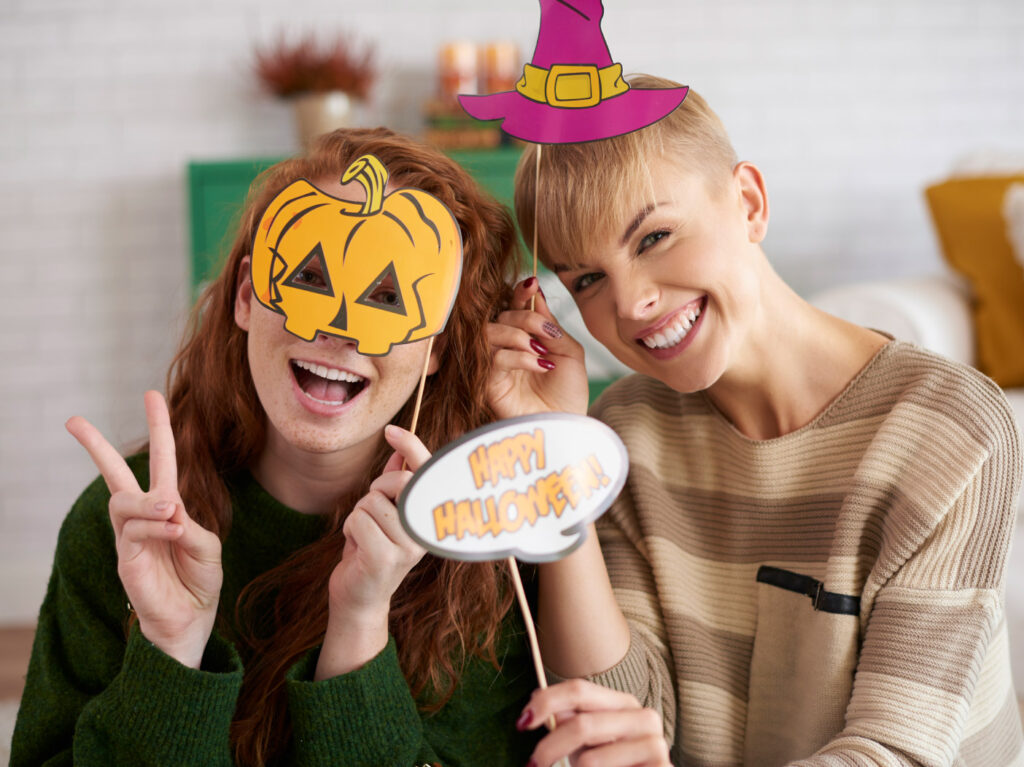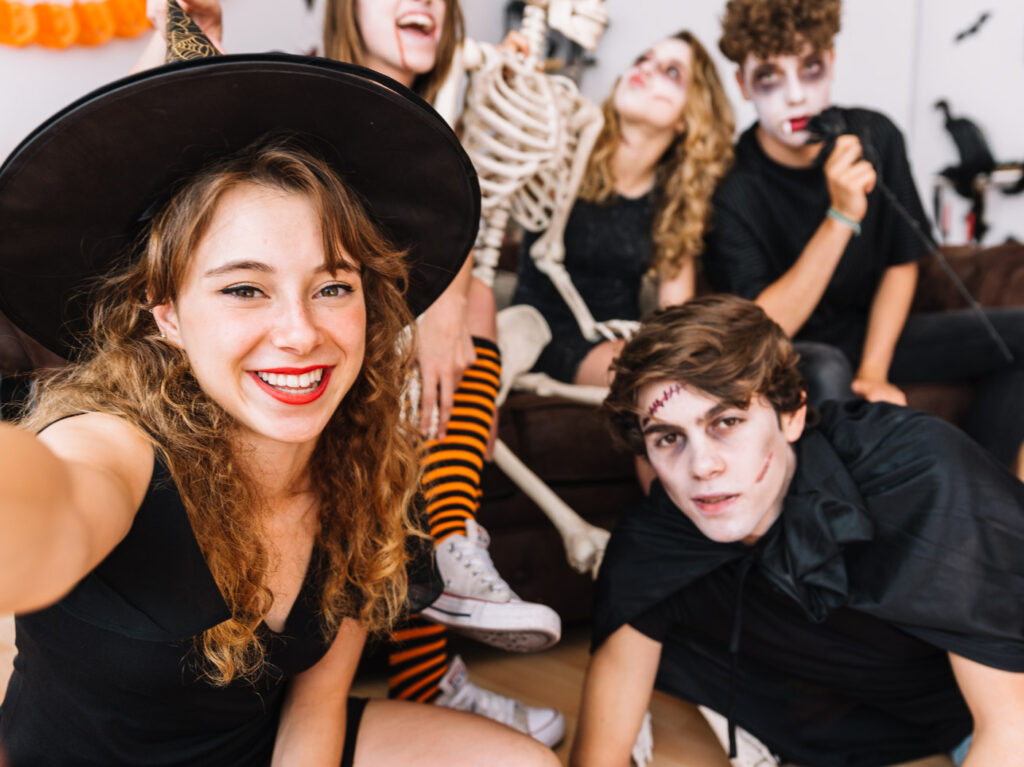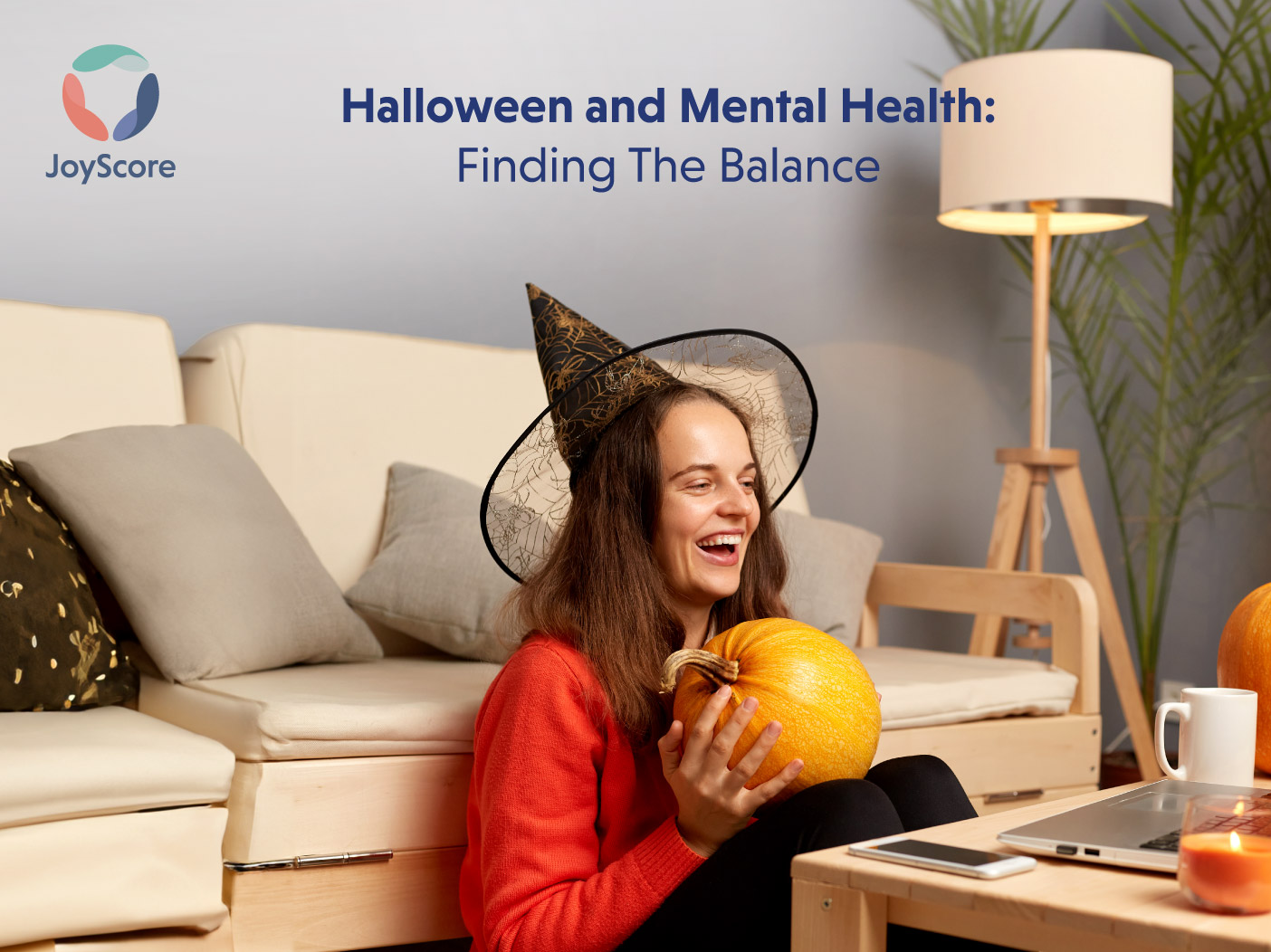Halloween, with its costumes, candy, and creepy decorations, is a holiday loved by many. It’s a time of year when we can embrace our inner child, play dress-up, and indulge in our favorite sweets. Beneath the surface of this spooky celebration lies a topic that often goes unaddressed – mental health. For some, Halloween can be a thrilling experience, but for others, it can be overwhelming and anxiety-inducing. Halloween, often dubbed the spookiest night of the year, brings an air of anticipation. Coping with holiday anxiety during Halloween is a challenge that shouldn’t be ignored. Balancing the season’s excitement with your mental health is essential for a more enjoyable and less overwhelming experience. However, it’s essential to recognize that this excitement can deeply impact our mental health. Download Joyscore to explore the connection between Halloween and mental health, and we’ll discuss strategies for maintaining your well-being during this exciting yet potentially challenging holiday.
Understanding Halloween and Mental Health
Halloween has become a widely celebrated holiday in many parts of the world. It’s a time when people of all ages come together to enjoy various activities, such as costume parties, haunted house visits, and trick-or-treating. The anticipation and preparation for Halloween can bring joy and excitement. Still, this season can exacerbate existing mental health challenges or trigger new ones for some individuals.
The connection between Halloween and mental health is multifaceted. While many people enjoy the festivities, it’s essential to recognize that not everyone experiences the holiday the same way. The pressure to create the perfect costume, attend numerous social events, and cope with seasonal changes can affect mental well-being.

Recognizing the Challenges
As we delve deeper into the relationship between Halloween and mental health, it’s crucial to understand the challenges that some individuals may face during this time.
1. Stress and Anxiety: Costume planning, party preparations, and the pressure to outdo previous years can lead to increased stress and anxiety.
2. Social Pressure: There’s often an expectation to attend Halloween events and gatherings, which can be overwhelming for those who struggle with social stress or introversion.
3. Seasonal Affective Disorder (SAD): For some, the arrival of Halloween coincides with the onset of fall and the decline in daylight hours, potentially contributing to mood changes and depression.
4. Phobias and Trauma Triggers: Halloween decorations and themes can sometimes trigger phobias or traumatic memories, causing distress.
5. Excessive Indulgence: The abundance of sweets and alcohol at Halloween parties can lead to overindulgence, which may negatively impact mental health.
Now that we’ve explored the challenges associated with Halloween and mental health, let’s discuss ten strategies that can help you manage your well-being during this festive season.
Strategies for Managing Mental Health
1. Self-Care Rituals: Amid the Halloween excitement, don’t forget to prioritize self-care. Dedicate time for relaxation, whether it’s through meditation, yoga, or simply unwinding with a good book. Self-care can be integrated into your Halloween activities.
2. Set Realistic Expectations: Coping with holiday anxiety requires a realistic perspective. It’s essential to understand that not everything needs to be perfect. Whether you’re planning a Halloween party or simply dressing up for the occasion, setting achievable goals and expectations can help alleviate stress. Remember, the most important thing is to enjoy the holiday in a way that feels comfortable for you.
3. Seeking Support: If you’re feeling overwhelmed, don’t hesitate to talk to a trusted friend, family member, or mental health professional. Sharing your concerns can be therapeutic and provide you with valuable insights.
4. Mindfulness and Relaxation: Practice mindfulness exercises to stay grounded and reduce anxiety. Deep breathing, progressive muscle relaxation, or instructed imagery can help you manage stress during this spooky season.
5. Moderation in Celebrations: Enjoy the Halloween treats, but remember that moderation is key. Overindulging in sweets or alcohol can lead to mood swings and exacerbate mental health issues.
6. Maintaining Routine: Stick to your regular daily routine as much as possible. Consistency can provide stability during a time when everything around you seems to be in flux.
7. Avoiding Triggers: If you have specific phobias or past traumas related to Halloween themes, take steps to avoid triggers. You can choose to stay away from certain decorations or settings that may bring back distressing memories.
8. Creating Safe Spaces: Designate a calm and safe space where you can retreat if the Halloween festivities become overwhelming. This space can serve as a refuge when you need a break from the excitement.
9. Alternative Celebrations: Consider alternative ways to celebrate Halloween that align better with your mental health goals. You can opt for a cozy movie night at home or participate in low-key, non-Halloween-related activities.
10. Post-Halloween Reflection: After the Halloween season ends, take some time to reflect on your experiences. Evaluate what worked well in managing your mental health and what you might want to adjust for the following year.
11. Know When to Say No: Don’t be afraid to say no to Halloween invitations or activities you don’t feel up to participating in. Prioritize your well-being and mental health above all else. Loved ones will understand and support your decision.
12. Practice Gratitude: Coping with holiday anxiety can be easier when you focus on the positive aspects of Halloween. Take time to reflect on what you appreciate about the holiday, whether it’s the opportunity to spend time with loved ones, the creativity involved in costume planning, or the simple joy of seeing children excitedly trick-or-treating.

Conclusion
Coping with holiday anxiety becomes more manageable when we shift our perspective to focus on the positive aspects of Halloween. It’s essential to take a moment to reflect on what truly brings us joy during this spooky season. Whether it’s cherishing the opportunity to spend quality time with loved ones, immersing ourselves in the creative process of planning costumes, or experiencing the sheer delight in children’s faces as they eagerly embark on their trick-or-treating adventures, these moments remind us of the heartwarming and joyful aspects of the holiday. By embracing these positive elements and holding onto them, we can counterbalance any anxiety that may arise, allowing us to fully enjoy and appreciate Halloween for what it is—a time of connection, creativity, and delight.



